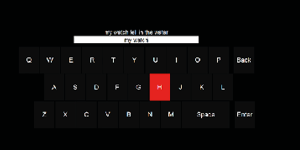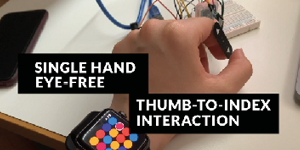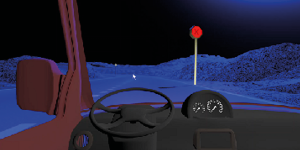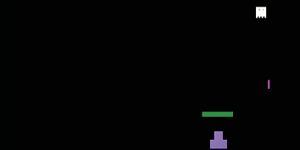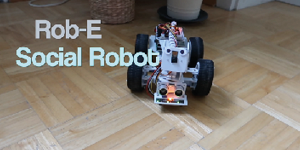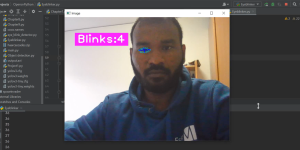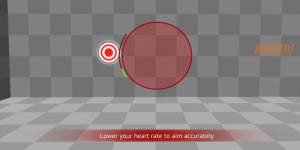Research
Psychophysiological research for Usability and HCI
The emphasis of our work is to carry out basic research with a strong connection to application- and user-oriented aspects. We focus the development of cognition-aware systems that determine cognitive and affective states by monitoring gaze, pupil size changes, skin conductance responses, heart rate activity and EEG oscillations. Also, we aim to evaluate whether and under which conditions physiologic activity can be influenced by high-level cognition. Apart from aspects of (mental) health, the opportunity of controlling bodily activations may offer new input channels in Human-Computer Interaction and eventually challenges basic assumptions from Affective Computing.
Below we provide an excerpt of recent projects carried out by students or project groups from Informatics (B.Sc.), Computer Science for Digital Media (M.Sc.), Human-Computer Interaction (M.Sc.) and Digital Engineering (M.Sc.). Click on a link to have a look at demo videos and to learn more about the research objectives.
A complete list of bachelor and master theses from the Usability department can be found here.
Research Project MARTA
in cooperation with the Chair of Drive, Automation and Robot Technology at Schmalkalden University of Applied Sciences and the Society for Intelligent Textile Products.
Duration: 16.06.2024 – 31.12.2025
Third-party funding: BMBF, funding program "WIR! - Wandel durch Innovation in der Region", WeCaRe alliance "Intelligent sensory telemedicine"
Funding: €237,121.00, own share: €67,839.00
Inter-university research group „Vernetztes und kognitives Fahren“
to prepare joint follow-up projects in funding formats of the German Research Foundation (DFG); in cooperation with the Ilmenau University of Technology (Chair of Radio Frequency and Microwave Technology), the Erfurt University of Applied Sciences (Chair of Intelligent Transport Systems) and the Schmalkalden University of Applied Sciences (Chair of Automation Technology and Robotics).
Duration: 01.04.23 - 31.03.2026
Third-party funding: Strategy and Innovation Budget (SIB) of the Thuringian Ministry of Economics, Science and Digital Society (TMWWDG)
Funding: €1,504,800, own share: €250,800
Research project "Talking Bodies"
in cooperation with the Chair of Crossmedia Moving Image
Duration: 01.04.2023 - 31.03.2024
Funded by: Bauhaus University Weimar, University Development
Funding: 30.800€
Teaching project "Empirical Research Seminar: Affective Computing"
Duration: 01.12.2022 - 30.11.2023
Funded by: Bauhaus-Universität Weimar, "Teaching Innovation Fund" award committee
Funding: 36.500€
Collaborative project GROOVE ("Experienced synchronization for connectedness and proximity in social virtual reality")
in cooperation with the Professorship of Virtual Reality and Visualization, the Professorship of Human-Computer Interaction and the Ilmenau University of Technology (Professorship of Media Psychology and Media Concept), Brandenburg Labs GmbH and Consensive GmbH
Duration: 01.04.2023 - 31.03.2026
Third-party funding: BMBF, "Nähe über Distanz"
Funding share Bauhaus-Universität Weimar: €958,538.82, own share: €313,155.60
Project HYBRID.B ("Learning space Bauhaus: individual-cooperative-hybrid")
Participation as representative of the Faculty of Media
Third-party funding: Foundation for Innovation in Higher Education, federal and state programme "Strengthening Higher Education through Digitization"
Funding share Bauhaus-Universität Weimar: €2,008,000
Launch funding for the development of a DFG grant
Duration: 01.10.2020 - 31.03.2021
Funded by: Bauhaus-Universität Weimar, Jury Commission for Research and Projects
Funding: 15.402€


